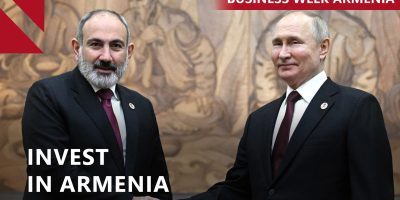 World Report 2015 is Human Rights Watch’s (HRW) 25th annual review of human rights practices around the globe. It summarizes key human rights issues in more than 90 countries and territories worldwide, drawing on events from the end of 2013 through November 2014.
World Report 2015 is Human Rights Watch’s (HRW) 25th annual review of human rights practices around the globe. It summarizes key human rights issues in more than 90 countries and territories worldwide, drawing on events from the end of 2013 through November 2014.
The Executive Director of HRW, Kenneth Roth’s introductory essay “Tyranny’s False Comfort: Why Rights Aren’t Wrong in Tough Times,” states that it has been a tumultuous year
Some of the past year’s most crippling and daunting security challenges included the rise of the extremist group Islamic State, China’s crackdown on Uighurs in Xinjiang, and Mexico’s abuse-riddled war on drugs. Human rights violations contributed to the foment and aggravation of these crises.
“The world has not seen this much tumult for a generation. The once heralded Arab Spring has given way almost everywhere to conflict and repression. Islamist extremists commit mass atrocities and threaten civilians throughout the Middle East and parts of Asia and Africa. Cold War type tensions have revived over Ukraine, with even a civilian jetliner shot out of the sky. Sometimes it can seem as if the world is unraveling.” Kenneth Roth
The report reflects extensive investigative work that Human Rights Watch staff undertook in 2014, usually in close partnership with human rights activists in the country in question.
Armenia’s human rights record according to the report was uneven — in other words, while there persists infringements on a number of freedoms, changes to alternative service to compulsory military service, as one example, was looked upon favorably although abuses in the country’s armed forces persists.
Freedom of Assembly
In terms of freedom of assembly, the report states that Armenian authorities interfered with people’s right to assemble and that in the first half of 2014, at least 70 activists were detained during peaceful protests. The report notes the different instances where protesters were detained, they include protests on pension reform, utility prices, destruction of historic monuments, etc.
Local human rights activists consider the prosecution and conviction of controversial political opposition leader Shant Harutyunyan and 13 of his supporters to be politically motivated. Authorities arrested the activists in November 2013 after clashes with police during an attempted march to the presidential administration building in Yerevan. In October, a Yerevan court convicted them of violence against the authorities and sentenced them to prison terms, ranging from one to seven years. Harutyunyan and activist Vardan Vardanyan allege police beat them immediately following their detention; the authorities refused to investigate.
 Protesting pension reform in Armenia.
Protesting pension reform in Armenia.
Torture and Ill-Treatment in Custody
“Local human rights activists report the continued use of torture and ill-treatment in custody, including in police stations and pretrial detention to coerce confessions, as well as in prisons and other facilities,” the report states and goes on to list a number of recorded cases of ill-treatment while in police custody.
Freedom of Expression
As was expected, a draft law that would hold media organizations responsible for comments deemed insulting (even those on social media) and libelous has affected Armenia’s ranking in the report. In the first half of 2014, a number of journalists and media outlets faced “spurious lawsuits and documented at least five incidents of physical violence against journalists.” The report gives specific examples of such incidents.
On June 24, journalists and others waited outside a Yerevan police department for the release of activists detained earlier that day. As police dispersed the crowd they also attacked several journalists. Police hit Ani Gevorgyan and Arpi Makhsudian of CivilNet.TV and smashed GALA TV cameraman Paylak Fahradian’s laptop.
Yet another blow to media freedom was the court case against Hraparak newspaper and Ilur.am website to disclose their sources as part of a criminal investigation. The OSCE office in Yerevan emphasized that one of the key principles in investigative journalism is a reporter’s right to protect his/her sources.
Alternative Military Service Reform and Army Abuses
“According to the religious freedom monitoring group Forum 18, for the first time since 1993 there are no Jehovah’s Witnesses imprisoned for conscientious objection to military service,” the Freedom House report states. While this has been hailed as progress, the report notes that concerns about conditions in the army are persistent. “Activists remain concerned about the thoroughness, transparency, and impartiality of investigations into non-combat deaths that are officially ruled accidents or suicides but where there may be evidence of violence.”
The report also touches upon disability rights, palliative care and minority rights in Armenia, primarily the LGBT community, which according to the report “continues to face discrimination, harassment and physical violence. Hate speech against LGBT people, including by public officials, remains a serious issue.”
Key International ActorsThe report also looks at what key international actors in the country and region say in their reviews about Armenia. Among expressed concerns by the United Nations, PACE, and the European Union was the ongoing and unfettered corruption, lack of an independent judiciary and a lack of a comprehensive anti-discrimination framework. However, in July 2014, a joint statement by the UN, EU, OSCE, and CoE commended Armenia for adopting a Human Rights Action Plan as an opportunity for meaningful accountability and human rights progress.
















